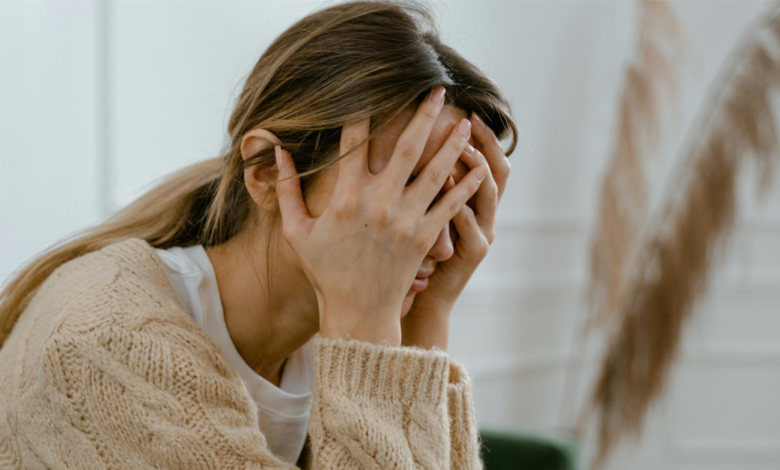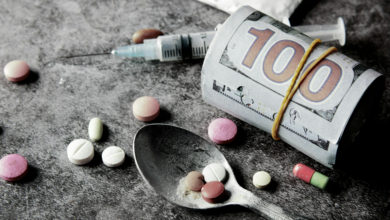GABA Dosage for Severe Anxiety: How Much Should You Take?

Managing severe anxiety often requires a multifaceted approach, including lifestyle changes, therapy, and sometimes supplements. One supplement that’s gained popularity in the mental health world is GABA (Gamma-Aminobutyric Acid). Known for its calming effects on the nervous system, many people turn to GABA in the hope of reducing anxiety symptoms naturally.
But a common question arises: What is the right GABA dosage for severe anxiety? In this comprehensive guide, we’ll cover what GABA is, how it works, how much to take for severe anxiety, safety concerns, and what science says about its effectiveness.
What Is GABA?
GABA (Gamma-Aminobutyric Acid) is a naturally occurring neurotransmitter in the brain that inhibits nervous system activity. In simple terms, GABA acts as the brain’s “brake system,” helping you slow down racing thoughts, reduce overstimulation, and achieve calmness.
Low GABA levels have been associated with:
Anxiety disorders
Panic attacks
Insomnia
Depression
Epileptic seizures
Because of its role in regulating stress and mood, many supplement companies market GABA as a natural anti-anxiety remedy.
How Does GABA Work for Anxiety?
GABA binds to GABA-A receptors in the brain, decreasing the activity of neurons. This leads to:
Muscle relaxation
Reduced mental stimulation
Slower heart rate
Feelings of calm or sedation
For people with severe anxiety, the brain often struggles to produce enough GABA or fails to use it efficiently. That’s why supplementing with GABA — either directly or indirectly (via GABA precursors or enhancers) — can sometimes help rebalance the system.
However, there’s a major catch: GABA supplements may not easily cross the blood-brain barrier (BBB) in many people. That’s why dosage and form become critical in determining effectiveness.
Recommended GABA Dosage for Severe Anxiety
There’s no universally agreed-upon dosage, but here are evidence-based and clinically used ranges:
| Severity Level | Dosage Range (Daily) | Usage Notes |
|---|---|---|
| Mild anxiety | 100 – 250 mg | Once or twice daily |
| Moderate anxiety | 250 – 500 mg | Split dose: morning and evening |
| Severe anxiety | 500 – 750 mg | May be taken 2–3 times daily |
| High therapeutic dose | Up to 1000 mg | Only under medical supervision |
⚠️ Important: Start with a low dose (100–250 mg) to assess your body’s response before increasing.
Best Practices for Taking GABA
If you’re considering GABA for severe anxiety, how you take it can make a significant difference:
1. Take on an Empty Stomach
Absorption is typically better when GABA is taken 30–60 minutes before meals.
2. Use Divided Doses
Split your daily dose into 2–3 servings to maintain stable GABA levels and avoid side effects.
3. Choose the Right Form
Sublingual (under the tongue) or liposomal GABA may bypass the digestive system and increase the chance of crossing the BBB.
Avoid low-quality, filler-heavy capsules.
4. Combine with Complementary Nutrients
Some people benefit from stacking GABA with:
L-theanine: enhances relaxation
Magnesium: supports GABA receptors
Vitamin B6: helps in GABA synthesis
Is GABA Effective for Severe Anxiety?
The effectiveness of GABA supplements is still a topic of scientific debate. Here’s what research and anecdotal evidence suggest:
✅ Positive Findings
Some users report rapid relief from anxiety, especially when using higher doses or sublingual forms.
A 2006 study published in Biofactors found that GABA supplementation increased alpha brain waves, linked to relaxation.
⚠️ Limitations
GABA’s ability to cross the blood-brain barrier is inconsistent.
Results vary from person to person.
It may work better as part of a complementary approach rather than a standalone cure.
Side Effects and Safety Considerations
GABA is generally well-tolerated, but higher doses may cause:
Drowsiness or sedation
Numbness or tingling
Shortness of breath (rare)
Gastrointestinal discomfort
Low motivation or lethargy
Who Should Avoid GABA:
Pregnant or breastfeeding women
People with low blood pressure
Individuals on sedatives, antidepressants, or anti-epileptic medications may experience interactions.
Always consult a healthcare provider before starting GABA, especially for severe anxiety, as other treatments (e.g., CBT, SSRIs, or benzodiazepines) may be more appropriate.
GABA vs. Prescription Anxiety Medications
| Feature | GABA Supplement | Prescription Meds (e.g., SSRIs, Benzos) |
|---|---|---|
| Availability | Over-the-counter | Prescription only |
| Speed of Relief | Rapid for some users | Fast (benzos) or slow (SSRIs) |
| Dependency Risk | Low | High (especially benzos) |
| Cost | Affordable | Higher, depending on insurance |
| Scientific Backing | Limited | Strong, well-documented |
While GABA supplements are accessible and low-risk, they’re not a replacement for evidence-based medical care in cases of chronic or severe anxiety.
Natural Ways to Boost GABA Levels
If supplements alone aren’t enough, these natural methods may help enhance your body’s GABA production:
🌿 1. Diet
Fermented foods (kimchi, yogurt, kefir)
Green tea (contains L-theanine)
Foods rich in glutamic acid (spinach, broccoli, lentils)
🧘 2. Meditation & Yoga
Studies have shown that practices like yoga and mindfulness naturally increase GABA levels in the brain.
💤 3. Sleep Optimization
Poor sleep reduces GABA function. Prioritize deep, consistent rest.
💊 4. Use GABA Precursors
Instead of GABA itself, supplements like L-theanine, taurine, and phenibut (with caution) may have a stronger effect.
Frequently Asked Questions (FAQs)
Q1: Can I take GABA every day?
Yes, but it’s best used in short-term or cyclical applications. The long-term use of this medication has not been extensively studied. Monitor your body’s response.
Q2: How quickly does GABA work for anxiety?
Some users feel effects within 30–60 minutes, especially with sublingual forms. Others may take longer or feel no effect at all.
Q3: Can I combine GABA with prescription anxiety medication?
Not without medical supervision. Combining GABA with SSRIs or benzodiazepines may lead to excessive sedation or drug interactions.
Q4: What time of day is best to take GABA?
For anxiety, morning and evening doses are common. For sleep-related anxiety, taking it 1 hour before bedtime can be helpful.
Q5: Does GABA work for panic attacks?
It may help calm the nervous system, but the results are inconsistent. Panic disorder usually requires a more comprehensive treatment plan.
Conclusion
GABA is a naturally calming neurotransmitter with real potential to support anxiety management, especially when used correctly. For individuals with severe anxiety, doses in the range of 500–750 mg per day, possibly divided into 2–3 servings, may provide relief, especially when paired with a holistic approach that includes lifestyle changes, therapy, and professional guidance.
While GABA supplements are safe for most people, effectiveness varies, and results are not guaranteed. Starting with a low dose, choosing high-quality forms, and consulting a healthcare provider are the best ways to make GABA a helpful part of your anxiety toolkit.



